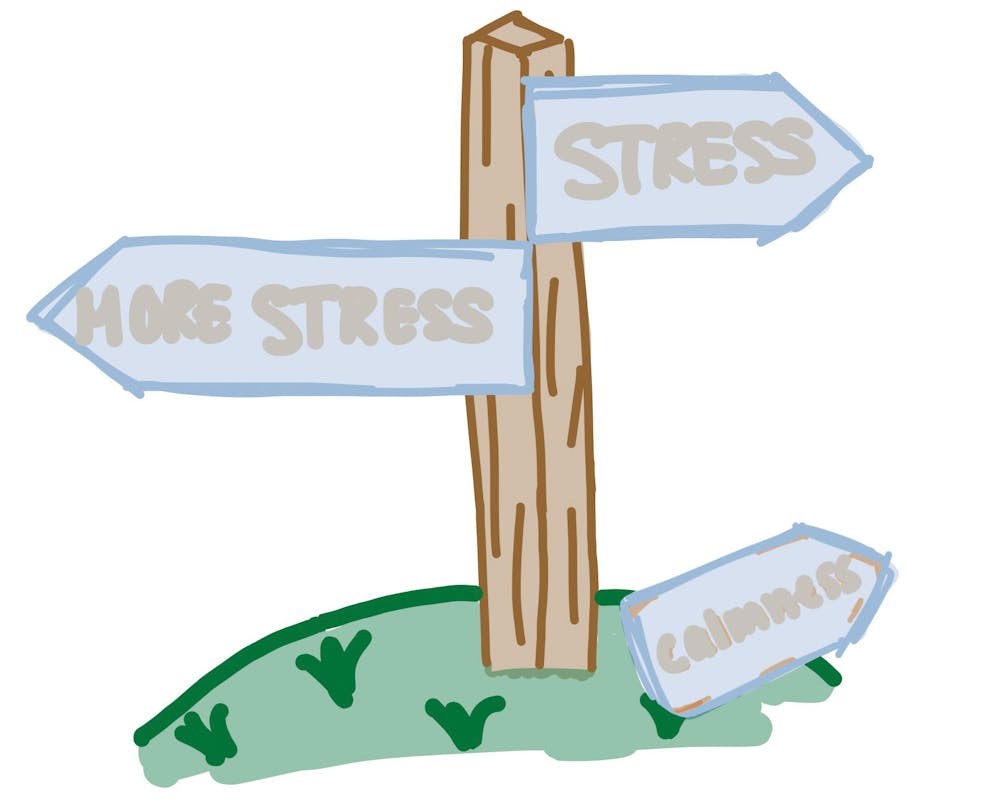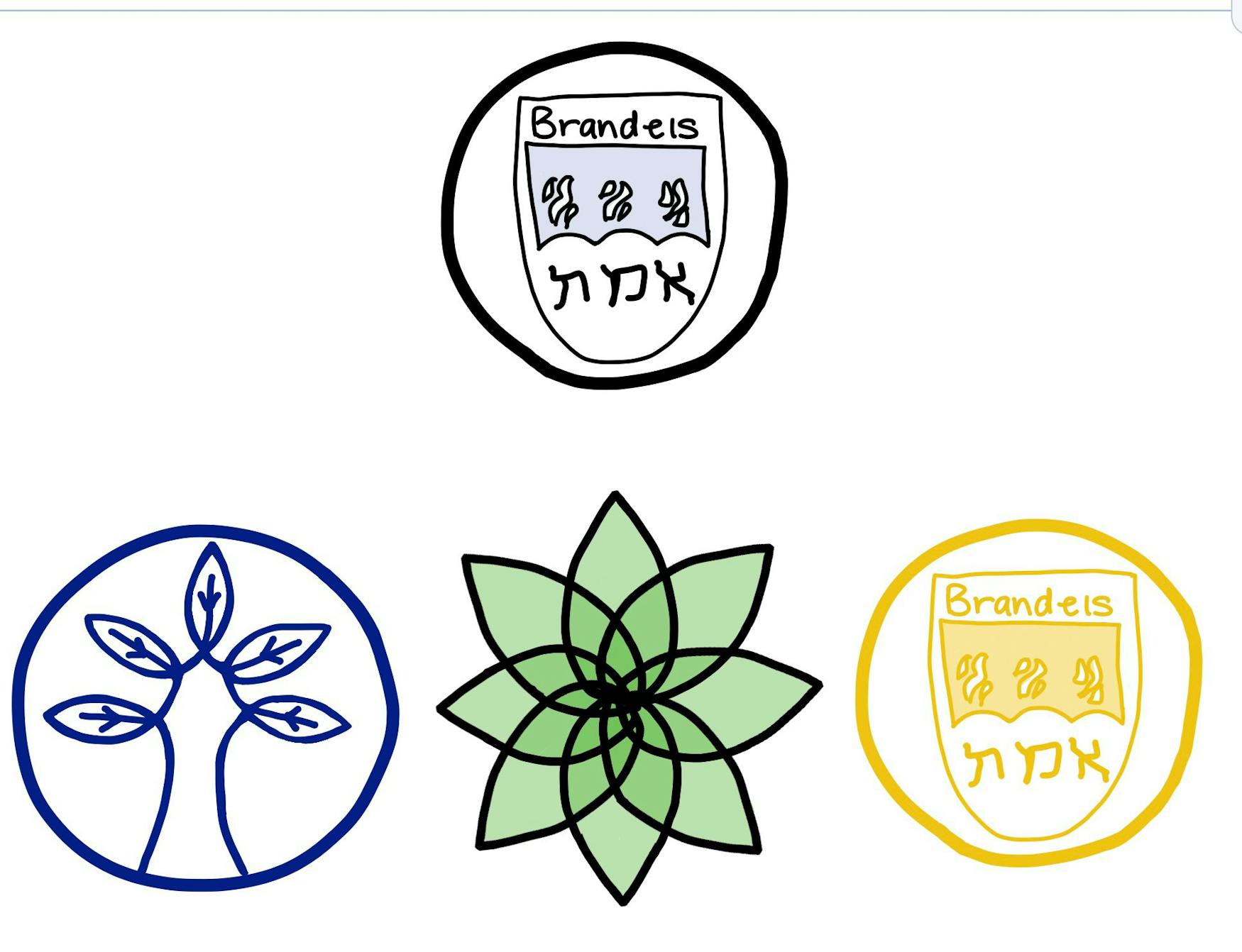Planning the Resilience Fair: A word with the organizers.
Learning to bounce back from challenges has never been so important.
Mental health is often on students’ minds at Brandeis, with community therapy initiatives and events such as Spa Night Done Right demonstrating a drive for well-being. The Resilience Fair, which occurs a few times a semester, is a school-sponsored effort to help students celebrate wellness. At the fair, which will take place on Jan. 29, students will learn about bouncing back from challenges and navigating difficult situations. Curious about the process of educating students on their mental processes, the Justice spoke with some of the fair’s organizers, including members of the Care Team, the Prevention, Advocacy and Resource Center, Health and Wellness Promotion and the Dean of Students Office.
About the organizers:
- The Care Team is a group of Brandeis administrators from several departments that work to address student wellness concerns and connect students with appropriate University services.
- Prevention Advocacy Resource Center is a group of peer advocates, professional staff members and violence prevention educators that offer confidential and educational services related to sexual harassment, sexual assault and domestic/dating violence.
- Health and Wellness Promotion is the group in charge of health and wellness promotion around campus. It heads several smaller groups, like Bridge to Wellness, that direct and conduct wellness and health initiatives.
What is the main purpose behind this event?
Wendy Gordon-Hewick, Care Team case manager, Dean of Students Office: The purpose the of Resilience Fair is to have an interactive opportunity to enhance the understanding of what resilience is (skills needed to bounce back from challenges, grow from failure, and build capacity to navigate and overcome difficult situations), and to raise awareness of campus resources that support resilience in our community.
Vilma Uribe, assistant director of PARC: The main purpose is to bring together students, staff and faculty to learn about resources on-campus that can support our entire community in building up our resilience – the skills needed to bounce back, cope with, and endure with difficult situations.
Why did you get involved? More broadly, why did you decide to join the group that you work with?
Leah Berkenwald, director of Health Promotion and Wellness Initiatives: When Wendy approached me about her idea for the Resilience Fair, I was excited to work with her, the Dean of Students’ Office and our partners in PARC and Graduate Student Affairs. College wellness work is most effective when it’s collaborative, so I feel very excited to be a part of this community-wide effort.
WGH: I joined the Care Team at Brandeis in the new position of case manager in July 2018. Much of what Care Team does is reactive; that is, support students to get connected to resources that support success in times of distress. Together with our campus partners, I wanted to create a proactive event so resources feel more accessible even when no overt distress is present. Brandeis has many resources, but many in our campus community don’t know about them, so the idea of the Resilience Fair was to bring resources together in a welcoming environment to increase awareness.
VU: I got involved with the Resilience Fair because I think that resiliency is a crucial part in my work with people who have been impacted by violence. Creating a space to explore different ways of accessing resiliency is a crucial tool when supporting someone’s healing journey.
The Resilience Fair is also a great place to explore some of the resources that we have on campus who offer different approaches to help us build resilience. For example, community is a great tool to build resiliency. It can help us feel less isolated and can make us feel more comfortable reaching out for support when we need it. If you’re a grad student getting to know the friendly faces at the Graduate Student Center could be a first step in getting more comfortable reaching out to the community there.
I joined PARC because of its mission and history. I was really moved when I learned about the student activism that helped create our office. After working a number of years in community organizations such as The Network/La Red, I learned the importance of empowering communities to mobilize against violence and oppression. At PARC, I have the great privilege of working and mentoring an amazing team of peer advocates and violence prevention educators who challenge oppression and violence every day and that is truly amazing.
What do you want students to take away from this fair?
LB: It’s important for students to have opportunities to get to know campus resources in a low-stakes, friendly environment. Additionally, by participating in the educational activities at each resource table, students can learn quick tips and takeaways for building up their own resilience.
WGH: My hope is that students and others in our campus community gain an increased awareness about one, what resilience is and that skill areas and theoretical framework exist, and two, campus resources that support resilience.
VU: One, I hope that students learn who the people are behind the offices, two, that there are different ways to build resilience and three, that it is okay to reach out for support.
What tips would you give students regarding resilience and reaching out for help when in need?
LB: Keep a growth mindset and practice self-compassion. Give yourself credit for what you’ve accomplished so far and look for the opportunity and potential for growth in every setback. Ask for help early and often; utilizing campus resources is smart, not shameful!
WGH: Life is rarely a straight line to achieve success — bumps along the way are inevitable. The capacity to grow, navigate challenges and “bounce back” can be supported, but only if students are able to recognize they need help and respond to it when offered. Receiving help sometimes makes us feel vulnerable, but it is really a powerful way to embrace strength.
VU: It is okay to try things out and later decide that they’re not what we want or need at the moment. When it comes to building resiliency, having the option to choose the tools that work for us rather than what everyone assumes we need is crucial. For example, mindfulness does not work for everyone and that’s okay!

Cartoon by Christina Kim




Please note All comments are eligible for publication in The Justice.